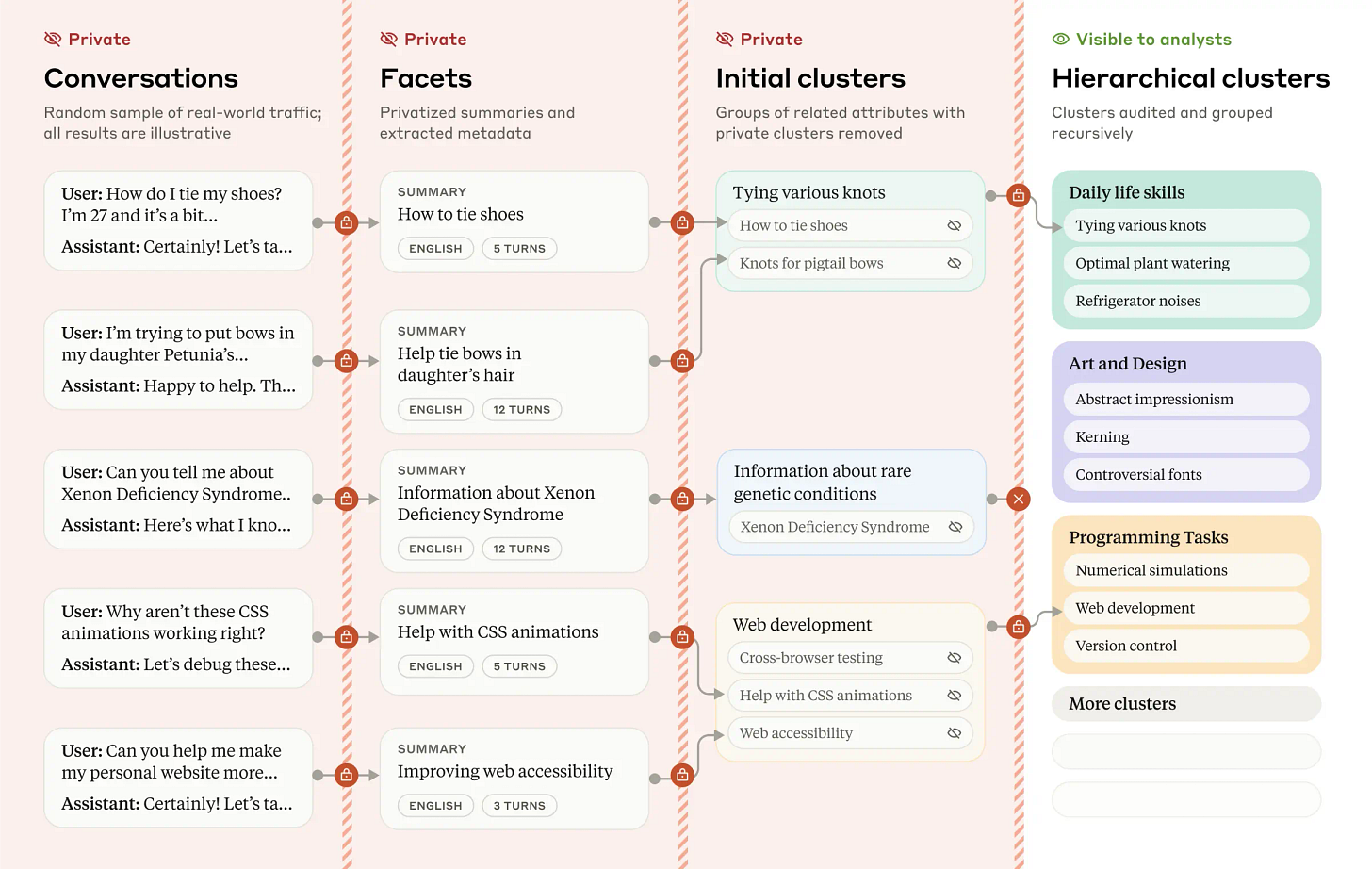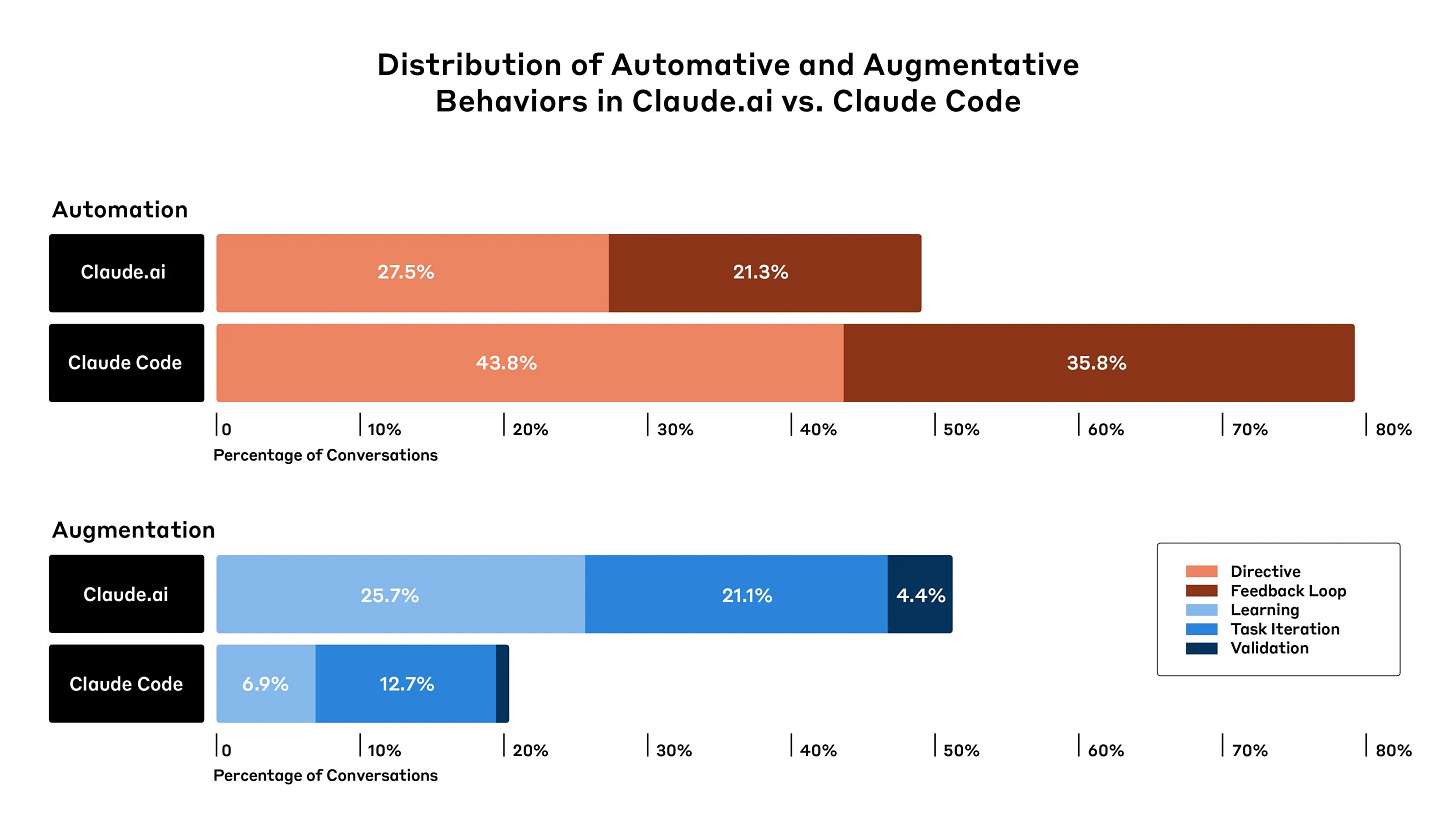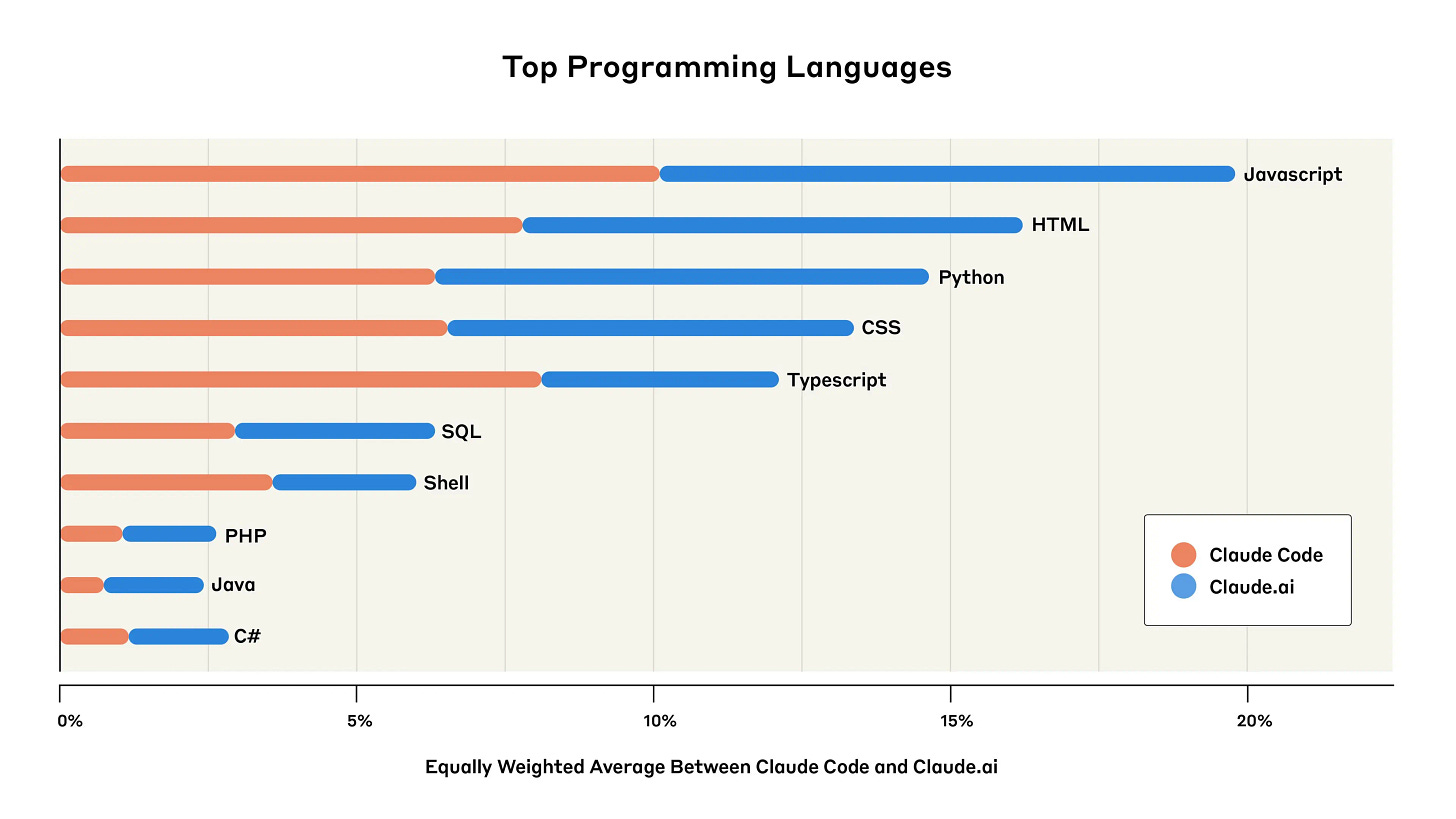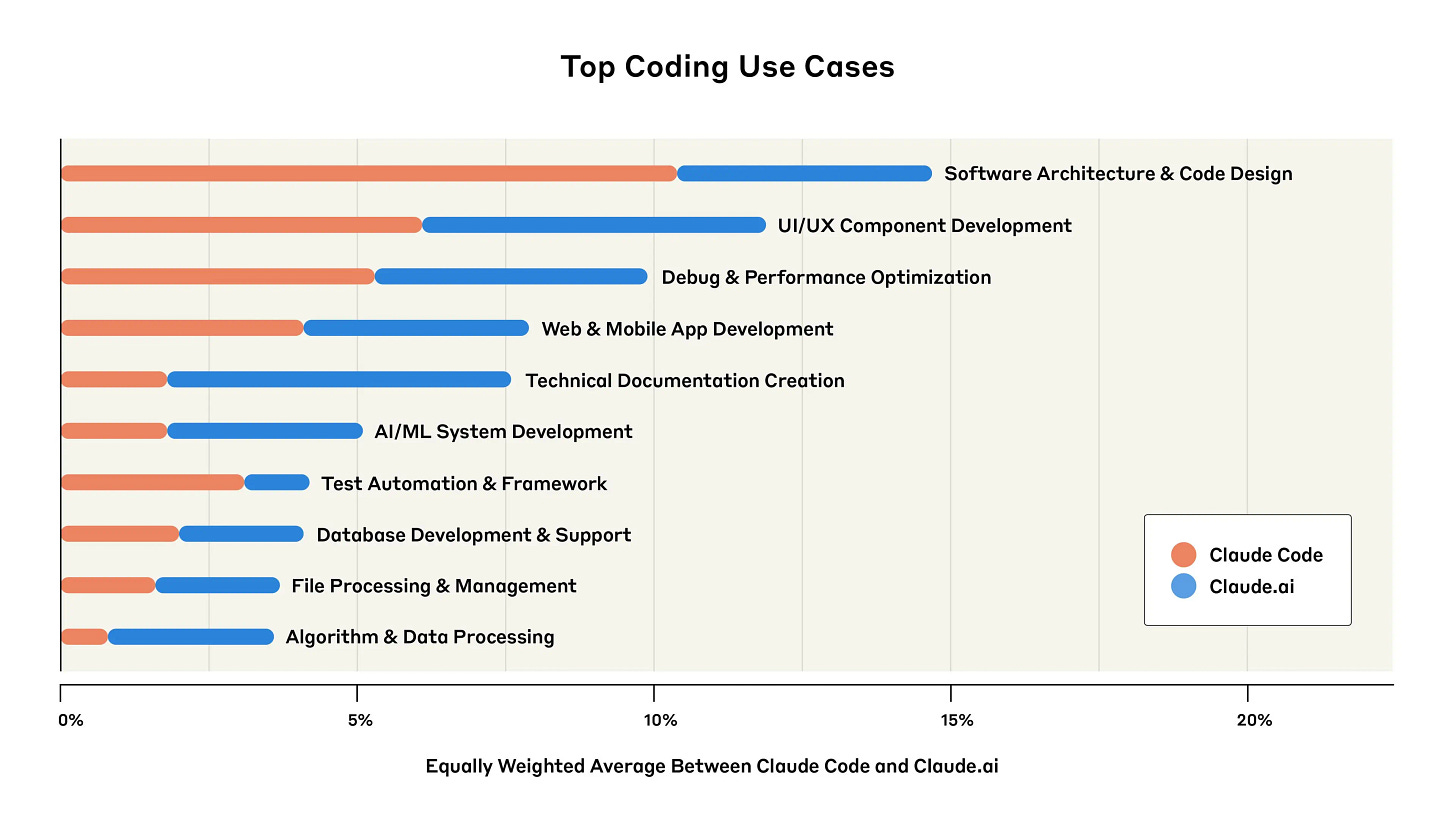What 500,000 Claude sessions reveal about AI’s affect on software development
Plus why I'm optimistic for developers!
AI is changing a lot of the world around us, and software development is at the top of the list. Anthropic recently released an analysis of over 500,000 coding-related chats across Claude.ai and their coding agent, Claude Code. Here are the highlights!
3 quick takeaways
79% of conversations on Claude Code were identified as “automation” (AI performs the task) rather than augmentation. Only 49% on Claude.ai
31% of queries in JavaScript/TypeScript and 28% in HTML/CSS
33% of sessions tagged “startup” vs. 13% “enterprise”
How Anthropic (securely) collected the data
To collect all this data, Anthropic used Clio, a fully-automated, privacy-first system to turn millions of chats into insights. Notably, the data analyzed didn’t include Team, Enterprise and API usage.
Here’s how Clio works, step by step:
Extracting Facets
For each conversation, Clio automatically pulls out multiple metadata “facets”(conversation topic, number of back-and-forth turns, language, etc).Semantic Clustering
Next, Clio groups similar chats into distinct clusters by theme or general topic.Cluster Description
Clio generates a title and summary for each cluster, while keeping conversation content private.Building Hierarchies
Lastly, clusters are organized into a multi-level hierarchy (up to four layers deep).
Categorization Framework
Anthropic reused and extended their “automation vs. augmentation” taxonomy from prior Economic Index reports:
Automation: AI performs tasks end-to-end (e.g., “Write a React form component”).
Augmentation: AI collaborates with a user to enhance their capabilities—split further into subtypes:
Directive: Minimal prompts (“Generate the JSON schema for this data”).
Feedback Loop: User pastes errors or partial outputs back to Claude for iterative fixes.
Task Iteration, Learning, Validation: Other collaboration patterns
Automation vs. Augmentation
Agent Runs the Show: Claude Code drives 79% pure automation (directive + feedback), vs. 49% in chat.
Chat for Exploration: Claude.ai accounts for 47% augmentation (learning + iteration + validation), vs. 20% in the agent.
Top Programming Languages
Web Stack Dominates: JavaScript, HTML, CSS, and TypeScript together make up over 60% of all sessions.
Chat for Syntax, Agent for Automation: JS queries spike in chat (22%) but drop in the agent (10%), while Python and shell scripting see stronger agent adoption.
Enterprise Languages Lag: Java, C#, and PHP each under 5%, underscoring the web focus.
Top Coding Use Cases
Strategy vs. Execution: Architecture & design peaks in chat (~14 %) but falls in the agent (~10 %), while full-page app scaffolding is flat across both.
UI & Debug Split: UI/UX work and debugging favor chat for back-and-forth, whereas prototyping and automation scripts thrive in the agent.
Docs & Tests Stay Collaborative: Technical documentation and test frameworks skew heavily toward Claude.ai.
Types of Projects in Claude.ai and Claude Code
Startups Lead: Startup sessions jump from 13 % in chat to 33 % on Claude Code, and personal projects climb from 30 % to 36 %.
Enterprises Hold Steady: Enterprise use stays around 24–26 % across both interfaces.
Learning & Research Stay in Chat: Tutorial, coursework, and academic work dominate Claude.ai (12–5 %+), dropping to under 3 % on Claude Code.
Wrapping up
Times are changing rapidly, but the developer pie is not fixed! If anything, AI will just lead to more code generated, not less, which means the need for developers will continue to increase, not decrease.








